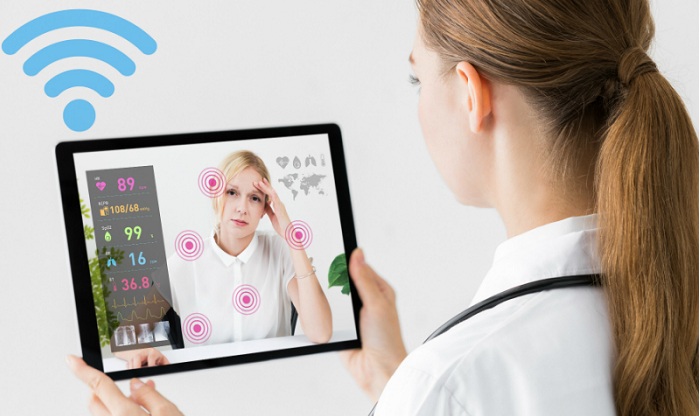Amongst others, the COVID-19 pandemic caused a lot of disruption to regular face-to-face medical services and jeopardised the provision of care. As part of the global response to this crisis, telemedicine is now being incorporated into the care continuum across the globe. The health authorities and the providers in the UAE were very quick to offer telemedicine solutions, including the release of the Remote Healthcare Platform by the Department of Health-Abu Dhabi. Being able to continue clinical care while minimising the risk of disease transmission was quickly achieved across the hospitals in the country as Dr Rahul Goyal will address in further detail at the HIMSS & Health 2.0 Middle East Digital Health Conference & Exhibition.
The growth of telemedicine consultations
Mediclinic was one of the organisations that quickly onboarded a telemedicine consultation solution that allowed clinicians to conduct teleconsultations with patients. What my colleagues and I immediately noticed was that the telemedicine consultations surprisingly mean more face time with our patients. Firstly, because it is human nature to look at a camera rather than looking at a computer screen, which we tend to do more in physical consultations. Secondly, we are now spending more time preparing for our consultations prior to the start of the video call as we can’t physically assess patients, which means the consultation is an even better dialogue.
Being deprived of the physical presence but having access to the patient’s medical history alleviates some of the stress experienced by physicians in this new telemedicine world due to the reduction of assumptions. This particularly applies in the instances where the patient has a Malaffi file that offers first-hand access to their longitudinal medical records and helps us be better informed about our patients and quicker understand the pertaining issues. In addition, having access to COVID-19 lab results in Malaffi even before the patient received the results, has a profound effect to the quality of care we were able to provide to our patients remotely.
Telemedicine has proven particularly useful with the management of chronic conditions such as high blood pressure and diabetes, including providing repeat prescriptions for chronic medications and minor ailments that don’t require the physical presence of a patient with a doctor. Mediclinic has also adopted a number of novel telemedicine applications for care such as lactation advice, cesarean wound check and baby massage classes.
Remote care and video-consultations
Through video-consultations, our paediatricians are also able to offer specialist advice on the management of chronic illnesses that require a visual check of the child, such as allergies and chronic gastrointestinal conditions. In cases such as these, the ability to conduct a video-consultation empowers all parties to remain actively involved in the child’s health and ensure that they are continuing to receive the appropriate treatment.
We have also found that COVID-19 may also be an enabler for the increasing application of home monitoring where we can extract the patient’s vitals remotely, regularly, and alert them if they need to seek further care.
The future of telemedicine consultations
When we move beyond the COVID-19 pandemic and envision the nature of how consultations will be conducted in the future, we would expect to see an increase in home care services from both the public and private sectors in the UAE. Although Mediclinic does not yet have long-term home care facilities, the digital infrastructure put in place by health information exchange platforms, such as Malaffi, where clinicians have full visibility of the patient’s medical history, including previous medical encounters and prescribed medicine, allows for the seamless delivery of care. Malaffi was also quick to adapt to the new ways of providing care and has ensured that teleconsultations are captured as a separate encounter type, so that details from those sessions are also available in the unified medical file in Malaffi, as they are recorded in the EMR system of the providers.
Finally, as the American Medical Association is calling for telemedicine to become a core competency of medical students, the same needs to be implemented in the UAE. Studies indicate that one of the main reasons clinicians do not practice telemedicine is lack of training and confidence and the success of telemedicine in the future will be primarily linked to the buy-in and upskilling of the medical community.


















